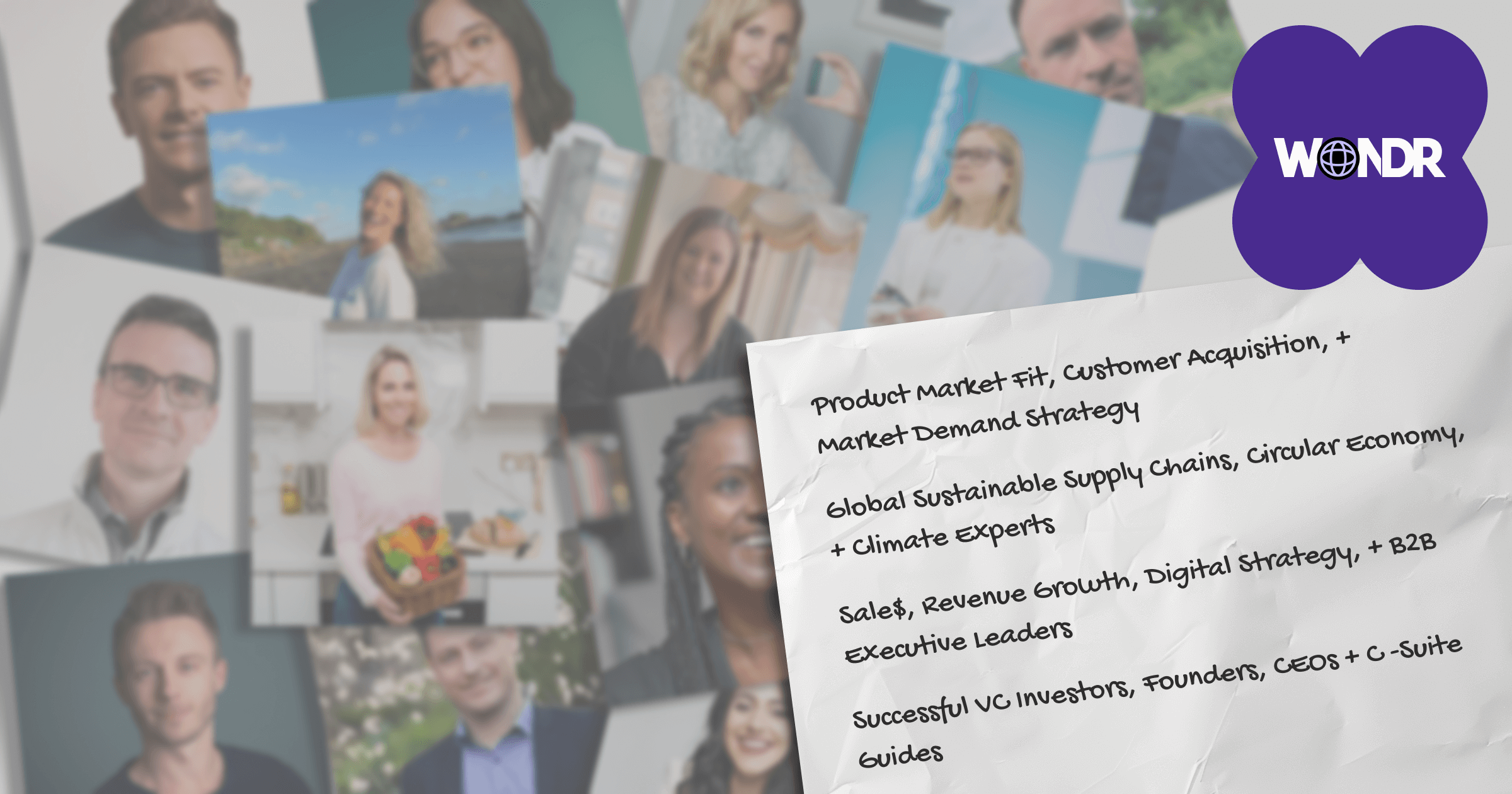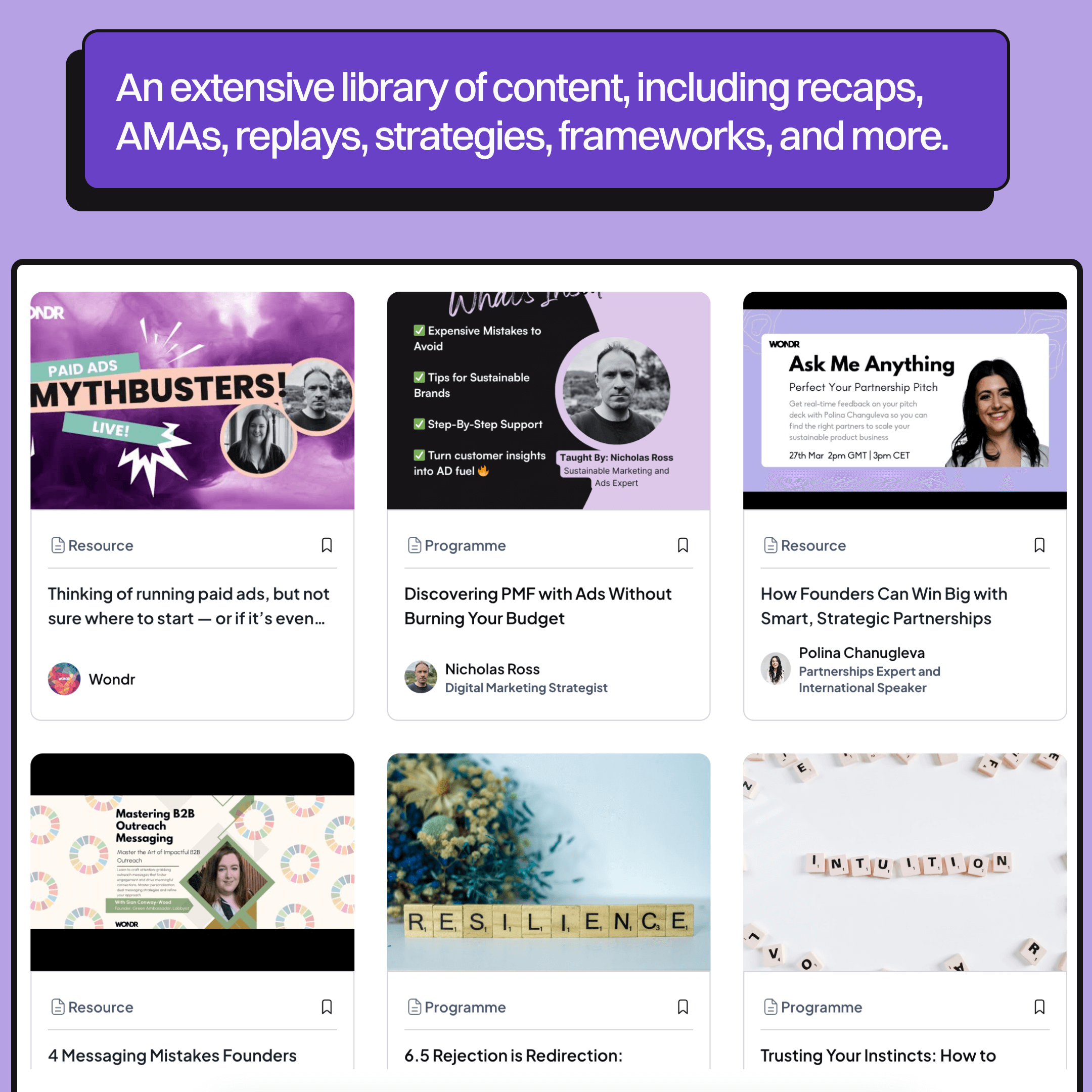From product-market fit to fundraising readiness, WONDR gives you the frameworks, support, and real-world insight to move forward faster.

Your Guides walk you through the hard stuff — defining your true customer, niching down, finding product-market fit, and building repeatable growth channels.
Get new strategies and tools from experts on Mondays and Tuesdays. Then join live sessions midweek to ask questions, solve challenges, and apply what you’ve learned with real operators.
Access the same frameworks used by founders and execs behind multi-million-pound businesses — plus support on how to adapt them to your specific goals and blockers.
You’ll access a safe and trusted network, in a space to connect and collaborate on your business goals, that progresses society and industry all through the WONDR platform.
Access to proven impact-leaders within industry as your Guides
Carefully connected to a trusted group of peers, at your stage and on your challenges
Unlimited Guided programmes, workshops and evergreen strategic frameworks and thinking
1:1 Office Hours / Group Community of Practice every 2 weeks (60 mins)
Software discounts for your business: £1,000s worth of savings on productivity and sales tools, investor directories and Ad Spend for your business

Choose areas you want to focus on — like customer acquisition or fundraising — and get personalized learning pathways to support your journey.
Receive curated lessons, toolkits, and expert insights right in your inbox or browser — all tied to real business outcomes.
.png)

Message fellow members, join focused founder pods, and collaborate in live discussions designed to help you apply what you’re learning.
Access everything from recorded masterclasses to on-demand workshops and articles — searchable, saveable, and always available when you are.


Bookmark resources, track your progress, and revisit key sessions or tools as your business evolves.
Build a profile that reflects your work, interests, and goals — and discover content and connections that align with where you're headed.

Checkout some of our favorite impact workshops and talks, for free!

Each Monday, receive a practical framework or strategy that focuses on a core growth area — like customer targeting, market positioning, or building sustainable sales channels — tied to the real stages of scaling your business.
Join a Guide-led session where you'll walk through how to apply the week’s strategy — with real-world examples, proven tactics, and clear steps you can adapt to your business.

.png)
In live office hours, bring your current challenges to the table — collaborate with your peers, get input from Guides, and leave with next steps you can immediately apply to move forward.
In a live AMA session, ask experienced founders and operators direct questions about applying the week’s strategy, overcoming obstacles, or adjusting your approach based on real business conditions.


Wrap up the week by reviewing your wins, identifying what needs more attention, and setting small, focused goals to stay on track toward revenue growth, stronger operations, and long-term resilience.
Access a Guide network of Impact Leaders who’ve raised over $200M and scaled international businesses. Including a community of peer support. Try any plan free for 21 days.
Ivette Tello
WONDR Community Member

Tatiana Maino
Impact Founder & CEO @ Oocca

Kresensia Viktoria
Corporate Legal
































.jpeg)































































.jpeg)














